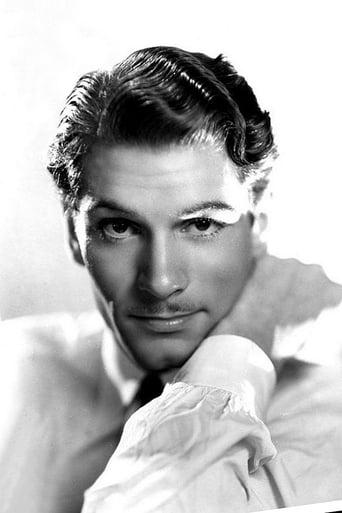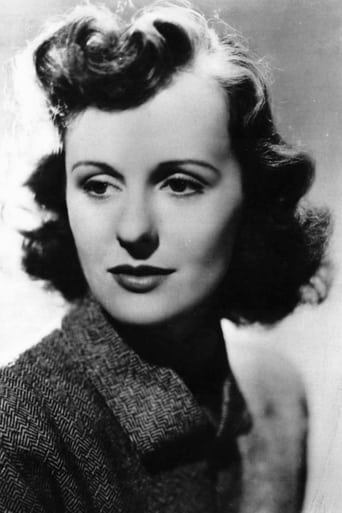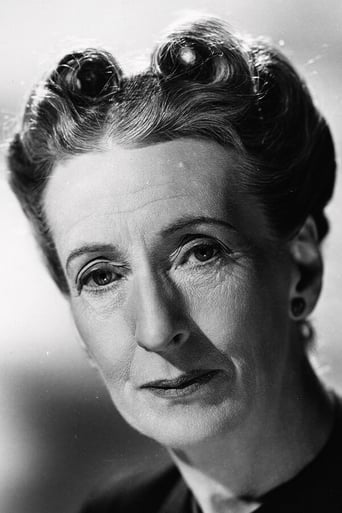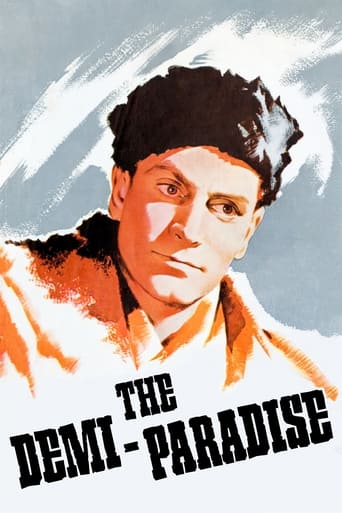
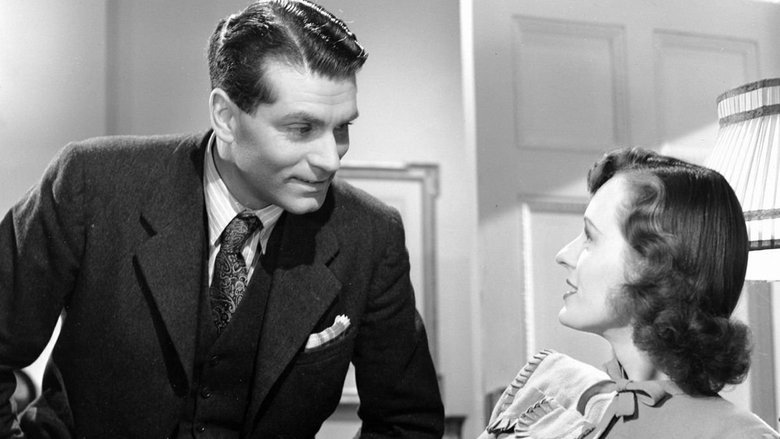
The Demi-Paradise (1943)
Ivan Kouznetsoff, a Russian engineer, recounts during World War II his stay in England prior to the war working on a new propeller for ice-breaking ships. Naïve about British people and convinced by hearsay that they are shallow and hypocritical, Ivan is both bemused and amused by them. He is blunt in his opinions about Britons and at first this puts off his hosts, including the lovely Ann Tisdall, whose grandfather runs the shipbuilding firm that will make use of Ivan's propeller. The longer Ivan stays, however, the more he comes to understand the humor, warmth, strength, and conviction of the British people, and the more they come to see him as a friend rather than merely a suspicious Russian. As a romantic bond grows between Ivan and Ann, a cultural bond begins to grow as well, particularly as the war begins and Russia is attacked by Germany.
Watch Trailer
Cast


Reviews
Overrated and overhyped
It's fun, it's light, [but] it has a hard time when its tries to get heavy.
It’s fine. It's literally the definition of a fine movie. You’ve seen it before, you know every beat and outcome before the characters even do. Only question is how much escapism you’re looking for.
This film is so real. It treats its characters with so much care and sensitivity.
Young Russian inventor Ivan Kouznetsoff (Sir Lawrence Olivier) brings his new design and prototype for an underwater ice-breaker propeller to pre-war England (1938-39) in hopes of presenting it to world famous engineer and shipbuilder, Mr. Runalow (Felix Aylmer), hopefully for production. He coincidentally meets Mr. Runalow's granddaughter, Ann (Penelope Dudley-Ward), who takes him under her wing and home to the family. Culture shock (in both directions) permeates his every experience and interaction. The development of mutual understanding is the sub-plot, hastened by Hitler's invasion of Russia during Kouznetsoff's second trip to England and its subsequent synergy of combined effort to assist Russia and to complete the ship with the cutting edge propeller.Having worked for 2+ years with émigrés from Russia who lived through WWII and were contemporaries with this film, Olivier's interpretation of Russian sensibility was of great interest to me and he did a very fine job. One of Olivier's best performances, in this writer's opinion. Well written script and dialog. Performances of Felix Aylmer and Penelope Dudley-Ward were quite enjoyable. Felix Aylmer as a wise genius in this film bears notice in contrast to his role as Polonius in Olivier's Hamlet. The film held my undivided attention the entire two hours.Highly recommended for anyone with high interest in inter-cultural relations. Given human nature's propensity for alienating others who display any differences, the making of this film was a stroke of genius. Hopefully it was widely viewed at that time (1943) and provoked reflection. If a picture is worth 1000 words, a moving picture is worth 1000 pictures. Kouznetsoff's speech at the ship's christening and launch is priceless - remarkably apt and inspiring.
During WWII, the American and British film industry made quite a few films that attempted to rehabilitate the perceptions about the Russian people. That's because before the war, they were the enemy, but now that the three countries were allies, the government pushed film makers to portray the Russians in very glowing terms. In the States, films like THE NORTH STAR gave a sickeningly sweet view of the Russians that were just too good to be true. THE DEMI-PARADISE is a British film that also seeks to made the Russians seem more human--more like our friends.It's interesting to see the famous actor Laurence Olivier playing Ivan Kouznetsoff--a Russian who talks to some British seamen during the war about his visit to London before the war. His accent seemed okay to me, but who am I to judge?! Anyways, the film is all told in flashback form. For the most part, Olivier's character is a bit standoffish and seems to think everything Russian is better--though this improves a bit through the course of the film. As for the Brits, they range from a few suspicious idiots to those who keep pointing out how "they are just like us". A father even wonders out loud about what a great husband Kouznetsoff would make. Talk about over-idealizing the Russians. As a result, the people in the film seem more like caricatures than real people. And as for Olivier, he seemed a bit silly--very stereotypical and broad in his portrayal.Now despite me not loving this film and disliking how unreal everyone seemed, it was a good bit better than the WWII Hollywood films that were pro-Russia. They went even further to idealize Russia--to such a point that the films are downright dumb, as no group of people is THAT wonderful and happy and full of spunk! Overall, it's an interesting curio but certainly not a film you should run out to rent.
This delightful romantic comedy has a situation similar to "Ninotchka" from several years earlier, but with the genders reversed: Loyal but somewhat naive Soviet apparatchik visits a Western capitalist country on serious business, is squired through the strange ways of his/her host nation by a light-hearted but likable native toward whom he/she develops romantic feelings, and alters his/her views on Soviet/West differences. Garbo and Douglas were incomparable in "Ninotchka," but Olivier, in an offbeat role for him, and Dudley Ward hold their own in this comic exploration of people's preconceived ideas about one another (the Russian assumes all English businessmen are "exploiters," the English boarders at a rooming house won't eat at the table with "one of them (a Russian communist)." Definitely worth seeing.
Good example of the type of movies made in England during the war, to keep spirits up. The Brits never seem to engage in gung-ho war stuff: which makes for more pleasant viewing.While nowhere near the league of, say, "A Canterbury Tale", The Demi-Paradise has enough realism (of the British character) to while away a pleasant hour and a half.


